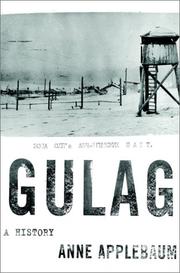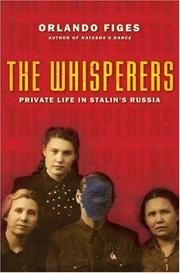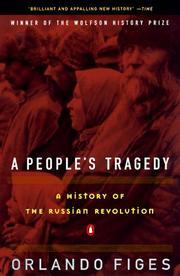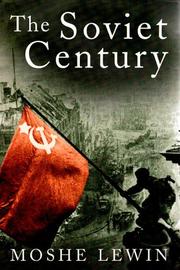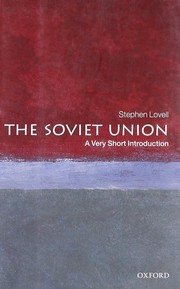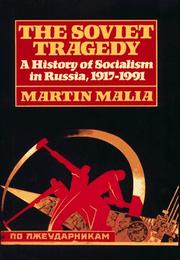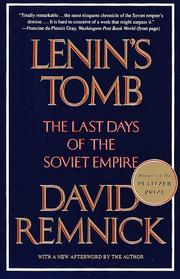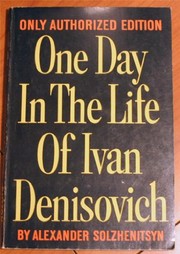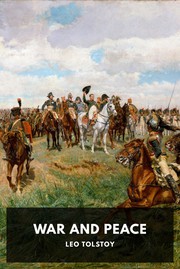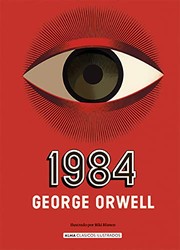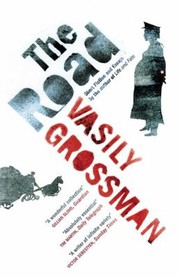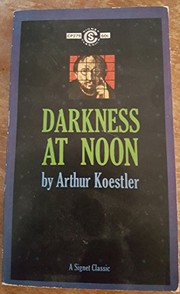Are you fascinated by the history and culture of the Soviet Union? Dive into the world of communist Russia with our list of the 20 best books about the Soviet Union. From gripping memoirs to in-depth historical accounts, these books offer a comprehensive look at life in the USSR. Whether you’re a history buff or simply curious about this intriguing period of time, these books on Soviet Union are sure to captivate and enlighten you.
Contents
- 1 20 Best Books About Soviet Union
- 2 Red Famine: Stalin’s War on Ukraine
- 3 Iron Curtain: The Crushing of Eastern Europe 1944-1956
- 4 Gulag: A History
- 5 The Whisperers: Private Life in Stalin’s Russia
- 6 A People’s Tragedy: The Russian Revolution 1891-1924
- 7 The Soviet Century
- 8 The Soviet Union: A Very Short Introduction
- 9 The Soviet Tragedy: A History of Socialism in Russia, 1917-1991
- 10 The Last Empire: The Final Days of the Soviet Union
- 11 Lenin’s Tomb: The Last Days of the Soviet Empire
- 12 One Day in the Life of Ivan Denisovich
- 13 Doctor Zhivago
- 14 War and Peace
- 15 The Gulag Archipelago
- 16 Animal Farm
- 17 1984
- 18 The Road
- 19 Red Notice
- 20 Darkness at Noon
- 21 Life and Fate
- 22 Conclusion
- 23
- 24 Books about Lonely Characters: 2024 Updated Guide to Essential Reading
- 25 Traditions And Celebrations Books: A Curated 2024 Updated List
- 26 Books on Zombies: Discover the Top 20 in our 2024 Updated List
20 Best Books About Soviet Union
Red Famine: Stalin’s War on Ukraine
by Anne Applebaum
Red Famine: Stalin’s War on Ukraine by Anne Applebaum is a gripping and harrowing account of the devastating man-made famine that swept through Ukraine in the 1930s. This meticulously researched book on the Soviet Union delves into the political machinations and policies of Joseph Stalin that led to the deliberate starvation of millions of Ukrainians. Applebaum sheds light on the historical context of the famine, the brutal tactics employed by the Soviet regime, and the resilience of the Ukrainian people in the face of unimaginable suffering. Through compelling narratives and analysis, the author paints a vivid picture of this dark chapter in Soviet history, offering a sobering reminder of the human cost of totalitarianism. Red Famine is an essential read for anyone interested in understanding the complexities of the Soviet Union and the impact of authoritarian rule.
Iron Curtain: The Crushing of Eastern Europe 1944-1956
by Anne Applebaum
Iron Curtain: The Crushing of Eastern Europe 1944-1956 by Anne Applebaum is a gripping book about the Soviet Union and its impact on Eastern Europe during the mid-20th century. Applebaum meticulously examines the ruthless tactics used by the Soviet regime to impose its control over the countries of Eastern Europe following World War II. Through extensive research and compelling storytelling, she vividly portrays the oppressive atmosphere and the human cost of living under Soviet domination. The book delves into the political maneuvering, propaganda, and repression employed by the Soviet Union to suppress dissent and maintain its grip on power. Iron Curtain is a thought-provoking and insightful book on the Soviet Union that sheds light on a dark chapter in history and offers valuable perspectives on the complexities of totalitarian regimes and their lasting impact.
Gulag: A History
by Anne Applebaum
Gulag: A History by Anne Applebaum is a compelling and comprehensive book on the Soviet Union’s notorious system of labor camps. Applebaum delves into the origins, expansion, and eventual collapse of the Gulag, shedding light on the untold stories of the millions of people who suffered under this oppressive regime. Through extensive research and firsthand accounts, she paints a vivid and chilling picture of the brutal conditions and human rights abuses endured by prisoners. This book about the Soviet Union also explores the political, economic, and social factors that contributed to the Gulag’s existence, offering a deep insight into this dark chapter of history. Applebaum’s powerful narrative and meticulous attention to detail make Gulag: A History a must-read for anyone interested in understanding the complexities of the Soviet Union’s oppressive regime.
The Whisperers: Private Life in Stalin’s Russia
by Orlando Figes
The Whisperers: Private Life in Stalin’s Russia by Orlando Figes is a captivating and chilling book about Soviet Union that delves into the personal experiences of ordinary citizens during the oppressive regime of Joseph Stalin. Figes meticulously chronicles the lives of individuals and families who lived through the terror, fear, and paranoia of Stalin’s rule, offering a poignant and harrowing portrayal of everyday life in the Soviet Union. Through diaries, letters, and interviews, the author provides a haunting glimpse into the struggles and sacrifices of those who endured the brutality of the Soviet regime. The Whisperers is a powerful and moving exploration of the human cost of totalitarianism, shedding light on the resilience and resilience of the human spirit in the face of unimaginable hardship.
A People’s Tragedy: The Russian Revolution 1891-1924
by Orlando Figes
A People’s Tragedy: The Russian Revolution 1891-1924 by Orlando Figes is a comprehensive and gripping book about the Soviet Union. Figes meticulously examines the events leading up to the revolution, the revolution itself, and the aftermath, painting a vivid picture of the upheaval, violence, and suffering experienced by the Russian people. Through extensive research and engaging storytelling, Figes delves into the political, social, and economic factors that shaped this pivotal period in Russian history. He also offers insights into the lives of ordinary citizens and the impact of the revolution on their daily existence. A People’s Tragedy is a must-read for anyone interested in understanding the complexities of the soviet union book and the profound impact of the Russian Revolution on the country and its people.
The Soviet Century
by Moshe Lewin
The Soviet Century by Moshe Lewin is a captivating book on the history of the Soviet Union. Lewin, a renowned historian, provides a comprehensive overview of the Soviet Union’s rise, development, and eventual collapse. Through meticulous research and engaging narrative, he delves into the political, social, and economic dynamics that shaped the Soviet Union, making it a must-read for anyone interested in the history of the 20th century. Lewin’s insightful analysis and compelling storytelling bring to life the complexities and contradictions of the Soviet experiment, offering readers a deeper understanding of this pivotal period in world history. Whether you’re a history buff or simply curious about the Soviet Union, this book about the Soviet Union is sure to enlighten and captivate.
The Soviet Union: A Very Short Introduction
by Stephen Lovell
The Soviet Union: A Very Short Introduction by Stephen Lovell is a concise and illuminating book on the history, politics, and society of the Soviet Union. Lovell provides an engaging and accessible overview of the rise and fall of the Soviet Union, exploring its major events, leaders, and ideologies. From the Bolshevik Revolution to the collapse of the Soviet state, this book about the Soviet Union offers a comprehensive and insightful analysis of one of the most influential and controversial political entities of the 20th century. Lovell delves into the complexities of Soviet society, economy, and culture, shedding light on the everyday experiences of its citizens as well as the grand political maneuverings of its leaders. Whether you’re a history buff or simply curious about the Soviet Union, this very short introduction to the Soviet Union is a must-read for anyone interested in understanding this fascinating and enigmatic chapter of world history.
The Soviet Tragedy: A History of Socialism in Russia, 1917-1991
by Martin Malia
The Soviet Tragedy: A History of Socialism in Russia, 1917-1991 by Martin Malia is a comprehensive and insightful book on the Soviet Union. Malia provides a detailed account of the rise and fall of the Soviet regime, exploring the complexities of socialism in Russia from the Bolshevik Revolution to the collapse of the Soviet Union. He delves into the political, economic, and social forces that shaped the Soviet state, offering a compelling analysis of the soviet union book. Malia’s narrative is both scholarly and accessible, making it an essential read for anyone interested in understanding the tumultuous history of the Soviet Union. His exploration of the failures and tragedies of Soviet socialism provides valuable insights into the broader implications of authoritarian rule and its impact on society. This book about the Soviet Union is a must-read for anyone seeking a deeper understanding of this pivotal period in world history.
The Last Empire: The Final Days of the Soviet Union
by Serhii Plokhy
The Last Empire: The Final Days of the Soviet Union by Serhii Plokhy is a gripping book on the Soviet Union that provides a fascinating account of the collapse of the communist regime. Plokhy’s meticulous research and compelling storytelling take readers on a journey through the tumultuous events that led to the soviet union’s downfall. From the rise of Gorbachev to the fall of the Berlin Wall, the book offers a comprehensive understanding of the political, social, and economic factors that contributed to the disintegration of the soviet empire. Through vivid descriptions and insightful analysis, Plokhy brings to life the key players and pivotal moments that shaped the soviet union’s final days. The Last Empire is a must-read for anyone interested in history, politics, and the soviet union.
Lenin’s Tomb: The Last Days of the Soviet Empire
by David Remnick
Lenin’s Tomb: The Last Days of the Soviet Empire is a gripping book on the Soviet Union written by David Remnick. This compelling account provides a detailed exploration of the final years of the Soviet Union, offering a behind-the-scenes look at the political turmoil, the collapse of the empire, and the end of an era. Remnick’s vivid storytelling and in-depth research bring to life the key figures and events that shaped the Soviet Union’s demise, making for a captivating and enlightening read. Whether you’re a history enthusiast or simply curious about the Soviet Union, this book about the Soviet Union is a must-read for anyone seeking a deeper understanding of this pivotal period in world history.
One Day in the Life of Ivan Denisovich
by Aleksandr Solzhenitsyn
One Day in the Life of Ivan Denisovich is a powerful and poignant book about life in a Soviet Union labor camp. Written by Aleksandr Solzhenitsyn, it follows the protagonist, Ivan Denisovich Shukhov, through a single day of his harsh and grueling existence in the Stalinist gulag. The book offers a raw and unflinching portrayal of the harsh conditions, brutal treatment, and constant struggle for survival in the Soviet Union labor camps. Solzhenitsyn’s vivid and evocative writing captures the despair, resilience, and humanity of the prisoners, shedding light on the dehumanizing effects of the Soviet regime. One Day in the Life of Ivan Denisovich is a seminal work that offers a profound and sobering glimpse into the realities of life under the Soviet Union’s oppressive regime.
Doctor Zhivago
by Boris Pasternak
Doctor Zhivago is a classic novel set in the tumultuous backdrop of the Russian Revolution. It follows the life of Yuri Zhivago, a physician and poet, as he navigates through the upheaval of the Soviet Union. The story delves into his personal struggles, love affairs, and the impact of war on his life. Pasternak’s lyrical prose and vivid descriptions bring the characters and the era to life, making it a timeless book about Soviet Union. The novel weaves together the political and personal, providing a gripping insight into the human experience amidst the chaos of revolution. Doctor Zhivago is a powerful and thought-provoking soviet union book that continues to resonate with readers worldwide.
War and Peace
by Leo Tolstoy
War and Peace, a classic novel by Leo Tolstoy, is a sweeping epic set against the backdrop of the Napoleonic Wars. This masterpiece delves into the lives of several Russian aristocratic families, their personal struggles, and their experiences during the tumultuous time of war and peace. Through its rich and intricate storytelling, Tolstoy captures the essence of life in Russia during the early 19th century, exploring themes of love, friendship, and the pursuit of meaning. This timeless book about Soviet Union weaves together historical events with the intimate lives of its characters, offering a profound reflection on the human condition and the complexities of society. With its vivid characters and immersive narrative, War and Peace remains a compelling and thought-provoking book on Soviet Union that continues to captivate readers around the world.
The Gulag Archipelago
by Aleksandr Solzhenitsyn
The Gulag Archipelago is a harrowing book on the Soviet Union, written by Aleksandr Solzhenitsyn. This seminal work provides a chilling account of the Soviet Union’s vast network of labor camps, known as the Gulag. Solzhenitsyn, a former prisoner himself, meticulously documents the oppressive regime’s tactics of imprisonment, forced labor, and systematic abuse of power. The book shines a light on the dark and brutal realities of life under Soviet rule, exposing the inhumane treatment and suffering of countless individuals. Through powerful storytelling and unflinching honesty, Solzhenitsyn’s work serves as an important historical record and a stark warning about the dangers of unchecked authority. The Gulag Archipelago is an essential read for anyone seeking to understand the profound impact of the Soviet Union’s oppressive regime.
Animal Farm
by George Orwell
Animal Farm by George Orwell is a classic allegorical novella that serves as a clever satire of the Russian Revolution and the rise of Stalinism. This thought-provoking book on the Soviet Union is set on a farm where the animals, led by the pigs, overthrow their human owner in an attempt to create a utopian society. However, as the pigs seize power, they become corrupted by it, mirroring the oppressive regime of the Soviet Union. Orwell’s vivid storytelling and use of anthropomorphism make this book about the Soviet Union both entertaining and insightful, shedding light on the dangers of totalitarianism and the manipulation of power. Animal Farm remains a timeless and relevant commentary on political corruption and the human capacity for oppression.
1984
by George Orwell
1984 by George Orwell is a dystopian novel that takes place in a totalitarian society ruled by the Party, led by the enigmatic Big Brother. The story follows Winston Smith, a low-ranking member of the Party who secretly rebels against their oppressive regime. As he navigates through a world of surveillance, propaganda, and thought control, Winston begins a forbidden love affair with Julia, a fellow Party member. The novel explores themes of government oppression, surveillance, and the manipulation of truth. With its chilling portrayal of a future society, 1984 has become a classic and a cautionary tale about the dangers of totalitarianism. It is a compelling book about a society ruled by a powerful and controlling government, making it a captivating read for anyone interested in political fiction or the book on Soviet Union.
The Road
by Vasily Grossman
The Road by Vasily Grossman is a powerful and harrowing novel set during World War II, offering a deep insight into the human condition in the midst of the turmoil of the Soviet Union. This poignant book on Soviet Union follows the journey of a soldier and a young boy as they navigate the devastation of war and the impact it has on their lives. Grossman’s writing captures the raw emotions and struggles of the characters as they confront the horrors of the war-torn landscape, making it a profound and moving book about Soviet Union. The novel provides a gripping portrayal of the human spirit, resilience, and the search for hope in the face of unimaginable adversity, making it a must-read for anyone interested in the complexities of the Soviet Union book.
Red Notice
by Bill Browder
Red Notice by Bill Browder is a gripping account of his experiences as an investor in post-Soviet Russia. This thrilling memoir takes readers on a rollercoaster ride through the world of high finance and international politics, as Browder navigates the murky waters of corruption and power struggles in the aftermath of the Soviet Union’s collapse. The book provides a firsthand look at the challenges and dangers of doing business in a volatile and uncertain environment, as well as the personal toll it takes on Browder and his colleagues. With its mix of high-stakes drama and insightful analysis, Red Notice is a must-read for anyone interested in the shadowy world of finance and politics in the post-Soviet era. This book about the Soviet Union is a gripping and eye-opening account that will keep readers captivated from start to finish.
Darkness at Noon
by Arthur Koestler
Darkness at Noon by Arthur Koestler is a compelling and thought-provoking book about the Soviet Union. Set during the Great Purge, the novel follows the story of Rubashov, a former high-ranking communist official who is arrested and interrogated by the government he once served. As he reflects on his life and the political ideals he once upheld, the novel delves into the complexities of power, ideology, and the human psyche. Koestler’s masterful storytelling and deep understanding of the Soviet Union’s political landscape make this a gripping and insightful read. Darkness at Noon offers a chilling portrayal of the era, shedding light on the inner workings of a totalitarian regime and the moral dilemmas faced by those within it.
Life and Fate
by Vasily Grossman
Life and Fate by Vasily Grossman is a monumental book on the Soviet Union, delving into the lives of individuals caught in the tumultuous upheaval of World War II. This powerful novel explores the human experience within the complex and oppressive Soviet regime, touching on themes of love, betrayal, and the struggle for survival. Grossman’s rich and intricate storytelling offers a profound insight into the human condition, set against the backdrop of war and political turmoil. With its vivid portrayal of the Soviet Union during wartime, this book about the Soviet Union offers a gripping and poignant exploration of the impact of totalitarianism on the lives of ordinary people. Life and Fate is a must-read for anyone interested in delving into the complexities of Soviet society during this tumultuous period.
Conclusion
Exploring the complex and fascinating history of the Soviet Union through literature is a captivating journey. The 20 best books about Soviet Union offer a diverse range of perspectives, from personal memoirs to historical accounts, providing an immersive understanding of this influential era. Whether delving into the political landscape, the daily lives of citizens, or the impact on global events, these books offer valuable insights into a significant period of history.
Which Soviet Union book is best?
The best book on Soviet Union can vary with personal preference, but three widely recommended titles are:
- Red Famine: Stalin’s War on Ukraine by Anne Applebaum,
- Iron Curtain: The Crushing of Eastern Europe 1944-1956 by Anne Applebaum,
- Gulag: A History by Anne Applebaum.
Each offers valuable insights and could be a great starting point.
What are the best books to learn about Soviet Union?
For those looking to learn about Soviet Union, there is a wealth of literature that can provide a comprehensive understanding of the subject. Some of the most highly recommended books include:
- Red Famine: Stalin’s War on Ukraine by Anne Applebaum,
- Iron Curtain: The Crushing of Eastern Europe 1944-1956 by Anne Applebaum,
- Gulag: A History by Anne Applebaum,
- The Whisperers: Private Life in Stalin’s Russia by Orlando Figes,
- A People’s Tragedy: The Russian Revolution 1891-1924 by Orlando Figes,
- The Soviet Century by Moshe Lewin,
- The Soviet Union: A Very Short Introduction by Stephen Lovell,
- The Soviet Tragedy: A History of Socialism in Russia, 1917-1991 by Martin Malia,
- The Last Empire: The Final Days of the Soviet Union by Serhii Plokhy,
- Lenin’s Tomb: The Last Days of the Soviet Empire by David Remnick
These books offer a range of perspectives on Soviet Union, covering various aspects and approaches to the subject.
What are the best books on Soviet Union?
The best books on Soviet Union include:
- Red Famine: Stalin’s War on Ukraine by Anne Applebaum,
- Iron Curtain: The Crushing of Eastern Europe 1944-1956 by Anne Applebaum,
- One Day in the Life of Ivan Denisovich by Aleksandr Solzhenitsyn,
- Doctor Zhivago by Boris Pasternak,
- The Soviet Tragedy: A History of Socialism in Russia, 1917-1991 by Martin Malia,
- The Soviet Century by Moshe Lewin.
Each offers unique insights into the subject. While these books on the topic of Soviet Union are highly regarded, it’s important to note that any list of ‘best’ books is subjective and reflects a range of opinions.
What are the best Soviet Union books of all time?
Choosing the best Soviet Union books of all time can vary depending on who you ask, but seven titles that are often celebrated include
- Red Famine: Stalin’s War on Ukraine by Anne Applebaum,
- Iron Curtain: The Crushing of Eastern Europe 1944-1956 by Anne Applebaum,
- A People’s Tragedy: The Russian Revolution 1891-1924 by Orlando Figes,
- The Soviet Tragedy: A History of Socialism in Russia, 1917-1991 by Martin Malia,
- Lenin’s Tomb: The Last Days of the Soviet Empire by David Remnick,
- Doctor Zhivago by Boris Pasternak,
- and One Day in the Life of Ivan Denisovich by Aleksandr Solzhenitsyn.
Each of these books has made a significant impact in the field of Soviet Union and continues to be influential today.



